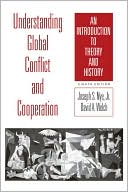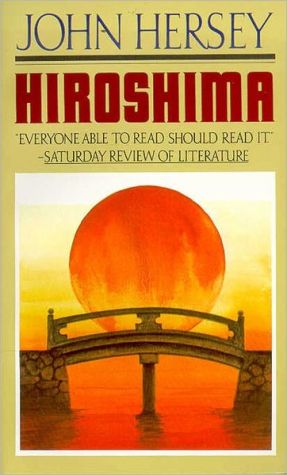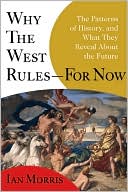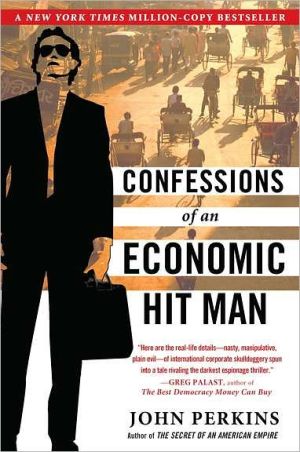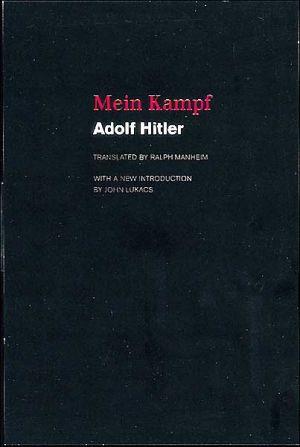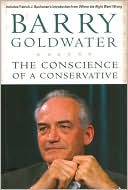Understanding Global Conflict and Cooperation: An Introduction to Theory and History
Search in google:
Written by renowned scholar and former policymaker Joseph Nye, Jr. and new co-author David A. Welch, Understanding Global Conflict and Cooperation is a brief and penetrating introduction to the study of world politics in an era of complex interdependence.This text deftly employs lessons from both theory and history to evaluate conflict and cooperation among global actors and to provide students with a resilient analytical framework. From twentieth and twenty-first century conflicts to global trade and finance, global governance, and the information revolution, Understanding Global Conflict and Cooperation, formerly known as Understanding International Conflicts, expands substantially on previous editions of this classic work to provide a lucid and thought-provoking survey of international relations today.
Foreword viiPreface ix1 Is There an Enduring Logic of Conflict in World Politics? 1What is International Politics? 2Differing Views of Anarchic Politics 4Building Blocks 9The Peloponnesian War 13A Short Version of a Long Story 13Causes and Theories 16Inevitability and the Shadow of the Future 18Ethical Questions and International Politics 21Limits on Ethics in International Relations 22Three Views of the Role of Morality 24Chronology: Peloponnesian Wars 302 Explaining Conflict and Cooperation: Tools and Techniques of the Trade 33Key Concepts 33States, Nations, and Nation-States 34International Actors, Power, and Authority 37International System and International Society 42System Stability and Crisis Stability 44The "National Interest" 45Levels of Analysis 46The Individual Level 48The State Level 51The System Level 53Paradigms and Theories 55Realism 56Liberalism 58Constructivism 63Marxism 64Counterfactuals and 'Virtual History' 65Plausibility 66Proximity in Time 66Relation to Theory 66Facts 673 From Westphalia to World War I 71Managing Great Power Conflict: Balance and Concert 74Balances as Distributions of Power 75Balance of Power as Policy 76Balance of Power as Multipolar Systems 78Alliances 80The Structure and Process of the Nineteenth-Century System 81Chronologies: Europe 84The Origins of World War I 86Three Levels of Analysis 87Was War Inevitable? 92What Kind of War? 95The Funnel of Choices 98Lessons of History Again 99Chronology: The Road To World War I 1004 The Failure of Collective Security and World War II 103The Rise and Fall of Collective Security 103The League of Nations 104The United States and the League of Nations 106The Early Days of the League 107The Manchurian Failure 110The Ethiopian Debacle 111The Origins of World War II 112Hitler's War? 112Hitler's Strategy 114The Role of the Individual 118Systemic and Domestic Causes 119Was War Inevitable? 120The Pacific War 122Appeasement and Two Types of War 126Chronology: Between The World Wars 1285 The Cold War 132Deterrence and Containment 133Three Approaches to the Cold War 134Roosevelt's Policies 136Stalin's Policies 137Phases of the Conflict 138Inevitability? 144Levels of Analysis 145U.S. and Soviet Goals in the Cold War 147Containment 148The Vietnam War 149Motives, Means, and Consequences 150Chronology: American Involvement in Vietnam (1954-1975) 151The Rest of the Cold War 155The End of the Cold War 156The Role of Nuclear Weapons 161Physics and Politics 161Balance of Terror 165Problems of Nuclear Deterrence 166The Cuban Missile Crisis 168Moral Issues 170Chronology: The Cold War Years 1736 Post-Cold War Conflict and Cooperation 181Managing Conflict 181International Law and Organization 184Domestic Analogies 185Predictability and Legitimacy 187The United Nations: Collective Security and Peacekeeping 188Intrastate Conflict 194Intervention and Sovereignty 196Defining Intervention 197Judging Intervention 199Exceptions to the Rule of Nonintervention 200Problems of Self-Determination 201Genocide and the "Responsibility to Protect" 203Interstate Conflict 205The Middle East 206Arab-Israeli Conflict 209Conflicts in the Persian Gulf, 1991 and 2003 217Chronology: Conflict In The Middle East 222A Nuclear Iran? 225Chronology: Iran's Nuclear Program 226India and Pakistan 228Chronology: The Kashmir Conflict 230The Taiwan Strait 231Chronology: The Taiwan Strait 232North Korea 233Chronology: North Korea 2357 Globalization and Interdependence 239The Dimensions of Globalization 240What's New about Twenty-First-Century Globalization? 242Political Reactions to Globalization 244Power and Globalization 245The Concept of Interdependence 245Sources of Interdependence 246Benefits of Interdependence 247Costs of Interdependence 249Symmetry of Interdependence 251Leadership and Institutions in the World Economy 253Realism and Complex Interdependence 257The Politics of Oil 259Oil as a Power Resource 2638 The Information Revolution and Transnational Actors 268Power and the Information Revolution 268Lessons from the Past 269A New World Politics? 272Sovereignty and Control 277Transnational Actors 280Nongovernmental Organizations (NGOs) 283The Information Revolution and Complex Interdependence 286Transnational Terrorism and the "War on Terror" 289Conclusions 2929 What Can We Expect in the Future? 296Alternative Visions 296The End of History or the Clash of Civilizations? 301Technology and the Diffusion of Power 303Proliferation of Weapons of Mass Destruction 305Transnational Challenges to Security 307A New World Order? 316Future Configurations of Power 317The Prison of Old Concepts 320The Evolution of a Hybrid World Order 321Thinking About the Future 324Glossary 327Credits 331Index 332
